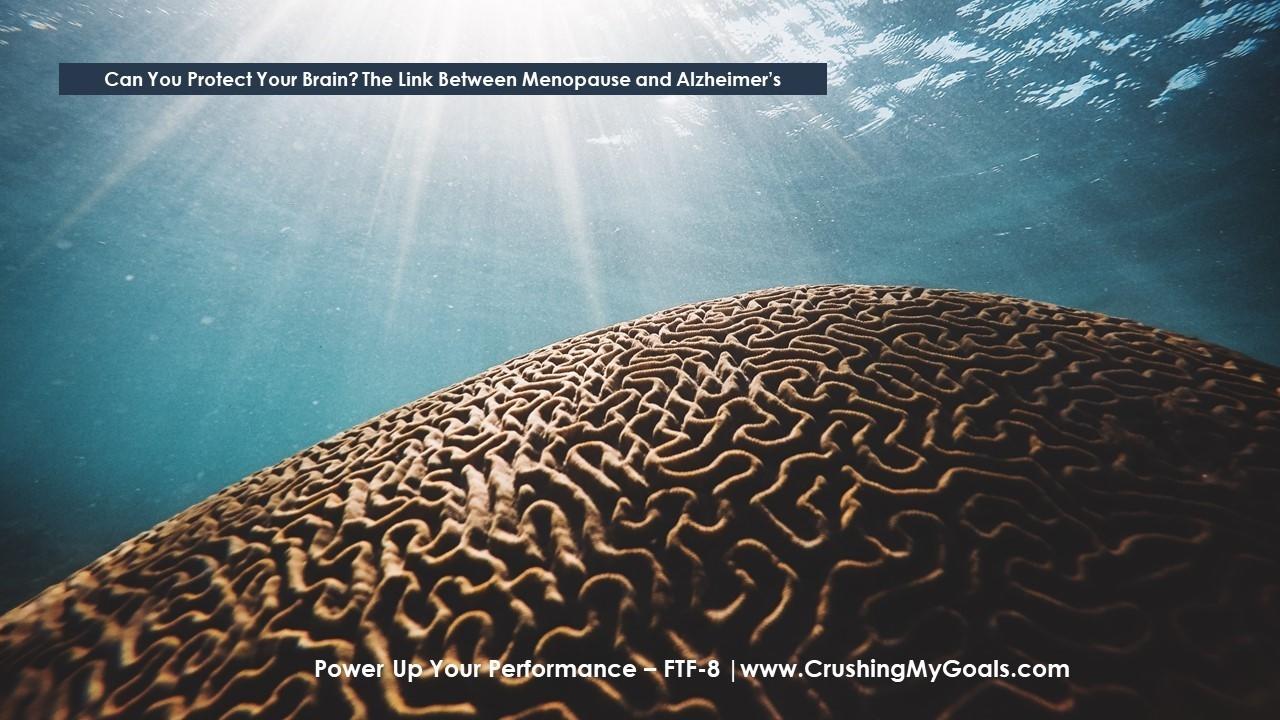Can You Protect Your Brain? The Link Between Alzheimer's and Menopause
Jun 07, 2019
I was alarmed when I woke up and read an article one of my friends posted on Facebook. It talked about the link between Alzheimer's and menopause. Early in the article, neuroscientist, Dr. Lisa Mosconi, says, "Well for one we have known for a good 10 years that taking out the ovaries or the uterus, increases risk of dementia in women."
The article also mentions that surgical removal of the ovaries increases the risk of Alzheimer's by 70%. This was not exactly the statistic I wanted to wake up to. At the end of the article, almost as a footnote, they mentioned that no one had yet studied how this affects breast cancer patients who are on hormone-blocking drugs. I felt like I was going to hyperventilate. Breast cancer sometimes feels like it's the gift that keeps on giving.
"Well for one we have known for a good 10 years that taking out the ovaries or the uterus, increases risk of dementia in women." - Dr. Lisa Mosconi
This is not an "old person problem." These changes begin in our forties... hot flashes, night sweats, memory slips... those times a word is on the tip of your tongue and you can't quite retrieve it... walking into a room and forgetting what you were looking for... all of these things can be symptoms that estrogen is dropping.
Although women make up 2/3 of people with Alzheimer's, this is another area of women's health where there has long been gender bias. Just as we now know that women experience heart attack symptoms differently than men, we are learning that women with dementia have long been under-diagnosed or misdiagnosed. Historically we have looked at women's health only in terms of reproductive organs and breasts. Mosconi says, "Every woman knows that as you reach menopause, your hair goes dry, your skin goes dry, that’s aging. Nobody ever thought that the same thing would happen in the brain. Now why are we not thinking that? Because, in neurology, we are trained to think that the brain is completely separated from the rest of the body."
Dr. Lisa Mosconi, PhD, is the Director of the Women’s Brain Initiative and Associate Director of the Alzheimer’s Prevention Clinic at Weill Cornell Medical College (WCMC)/NewYork-Presbyterian Hospital, so in addition to research, she also works with people to treat or delay the onset of Alzheimer's. Alzheimer's starts in the brain 20-30 years before symptoms present, and Mosconi studies how the risk of memory loss and Alzheimer’s disease can be mitigated, if not prevented through the combination of appropriate medical care and lifestyle modifications involving diet, nutrition, physical and intellectual fitness.
The Women's Brain Initiative website links to an extensive list of research papers on this topic. While much more research is needed, there are some things that experts agree help brain health. The best news is that all of these things will help improve your quality of life right now:
- Mosconi recommends a Mediterranean diet, which consists of fruits, vegetables, whole grains, seeds, nuts and beans, healthy fats, salmon and limited meats.
- Nourish your body with Omega 3s, antioxidants and phytoestrogens
- Some sources of Omega 3s: Salmon, Mackerel, chia seeds, hemp seeds, flax seeds, walnuts, kidney beans.
- Some sources of antioxidants: dark chocolate (yay!), blueberries, strawberries, artichokes, goji berries, kale, red cabbage, beans, grapes, green tea, sweet potatoes.
- Some sources of phytoestrogens: nuts and seeds, apples, strawberries, grapes, yams, lentils, sprouts, tofu, tempeh. (If you are at risk for breast cancer, or have had breast cancer, consult your doctor about phytoestrogens because there is conflicting research about this)
- Limit processed foods, which are loaded with sugar, unhealthy fats and salt. They tend to be full of both preservatives and calories and are not typically the most nutritious option. (Chips, boxed cookies, crackers, many microwave meals, sodas, sugar-filled coffee drinks, lunch meats, pastries, many fast foods, and more)
- Reduce stress. Take time to meditate, pray, take a hot bath, swing in a hammock outside, focus on your breathing and take time to be present in the moment.
- Exercise. There are extensive studies on the effect exercise has on the brain. Walk, hike, cycle, chase balls with your dog... increase your heart rate for 150 minutes a week. You can break this up into small chunks.
- Foster social connections. People who have friends and a support network live longer, happier lives. They are also more likely to stick with a fitness routine if they have a buddy do participate with.
- Challenge your brain. Puzzles and word games are great, but so is any activity where you are forced to learn something new. Whether that's taking a dance class, or attending a step aerobics class with tricky choreography, or taking on a new hobby that requires you to think and problem-solve... the challenge will help keep your brain sharp.
Until there is more research on the connection between Alzheimer's and menopause, we should continue doing the things that research has shown to influence brain health.
I would love to work with you and help you think, feel and live like a champion! Whether it's a healthy habit you want to develop, or a bucket list goal like a marathon, I'm here to help!
XOXO,
Coach Kim
SUBSCRIBE FOR WEEKLY LIFE LESSONS
Lorem ipsum dolor sit amet, metus at rhoncus dapibus, habitasse vitae cubilia odio sed.
We hate SPAM. We will never sell your information, for any reason.

